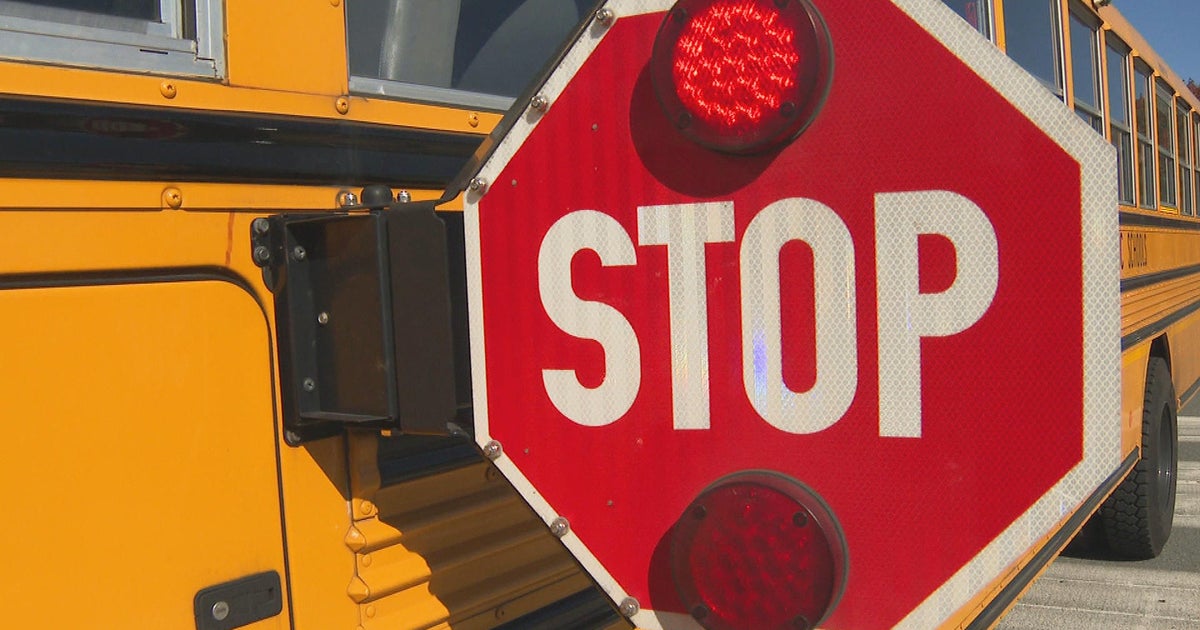Florida Patients Drawn To Smokable Medical Marijuana
TALLAHASSEE (CBSMiami/NSF) -- More than 1.82 million ounces of smokable medical marijuana were ordered for 128,040 patients over a six-month period, a new state report shows.
That translates to 113,922 pounds, or 57 tons, of flower marijuana.
The report, compiled on behalf of the state Board of Medicine and the Board of Osteopathic Medicine, shows that 44 percent of 291,865 patients certified to use medical marijuana as of Sept. 30 are smoking it.
While the report tracks data on medical marijuana for the 12-month period between Oct. 1, 2018 and Sept. 30, 2019, the data for smoking marijuana only tracks use of the drug for a six-month period. That's because it didn't become legal to smoke medical marijuana in Florida until March.
"I thought it would be more," medical-marijuana lobbyist Ron Watson said of the number of patients who smoke cannabis for medicinal purposes.
Florida voters in 2016 approved a constitutional amendment that broadly legalized medical marijuana in the state, but lawmakers initially banned smokable marijuana. That changed after Gov. Ron DeSantis took office in January and pushed lawmakers to eliminate the ban.
Patients can use medical marijuana to treat 10 specific conditions, such as cancer, HIV, AIDS and post-traumatic stress disorder. Additionally, patients who suffer from conditions that are the same kind as the 10 specific conditions, patients who have terminal illnesses and patients who suffer from chronic non-malignant pain can qualify for medical marijuana.
Some patients have more than one qualifying condition, and patients can be certified for low-THC cannabis or types of marijuana that can make them feel high, or both.
Most of the patients who qualified, or 162,277, had just one condition. A small number of patients, or 5,644, suffered from four or more qualifying conditions, the report showed. Most patients, 34 percent, qualified for medical marijuana for treatment of non-malignant pain, followed by the broader "same kind" category, 29 percent, and post-traumatic stress disorder, 22.6 percent.
Overall, 1,487 physicians certified patients for medical marijuana use during the 12-month period the report examines. Nine percent of those physicians are responsible for more than half --- or 61 percent --- of the certifications.
A draft version of the report released this summer caused concern among some physicians who serve on the Board of Medicine and the Board of Osteopathic Medicine. They expressed worries that medical marijuana was going to become similar to the state's pill-mill crisis.
But Watson said that isn't the case. He contended it's often easier for physicians to refer patients to doctors they know are willing to certify for medical marijuana than to certify the patients themselves.
"It's not a churning process, I would argue it's the way the system is set up," he said.
For instance, Watson said physicians are reluctant to discuss medical marijuana options if patient visits are billed to insurance companies. That's because medical marijuana treatment isn't covered by policies, even if patients asks physicians about the treatment option.
"It will come back to bite them," Watson said, noting that one physician he knows has established a separate entrance in her medical office for medical marijuana patients to use out of an abundance of caution.
"It's just easier to refer to the person down the street," Watson said.
The report also said 257,381 patients --- or 88 percent --- were qualified for medical marijuana by just one physician, rather than multiple physicians.
The report is based on data from the Medical Marijuana Use Registry which contains information about patients and physicians who certify patients. It also relies on information from the Division of Medical Quality Assurance licensure database, which contains the licensure data for all licensed practitioners, as well as the practitioner profiles for allopathic and osteopathic physicians.
Members of the Board of Medicine and Osteopathic Medicine's Physicians Certification Review Panel will review the report --- and discuss recommendations to the Legislature --- at a Dec. 5 meeting in Altamonte Springs.
The state has 180 dispensaries where patients who have received approval from their doctors can buy a variety of products. Two political committees also are trying to put constitutional amendments on the 2020 ballot that would legalize recreational marijuana for adults.
(©2019 CBS Local Media. All rights reserved. This material may not be published, broadcast, rewritten, or redistributed. The News Service of Florida's Christine Sexton contributed to this report.)



